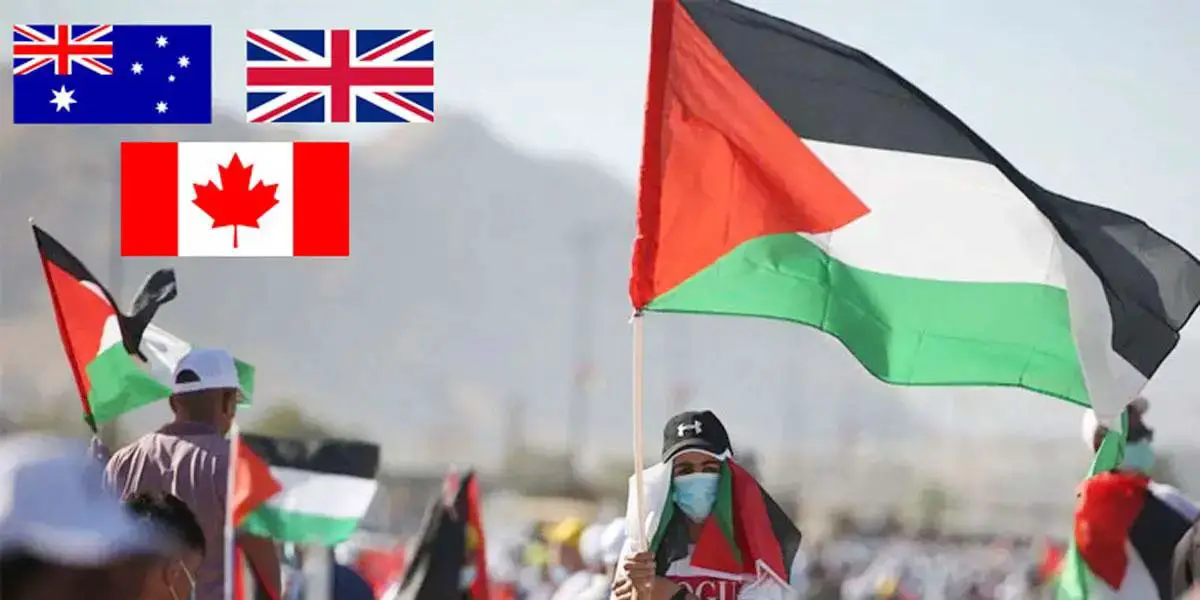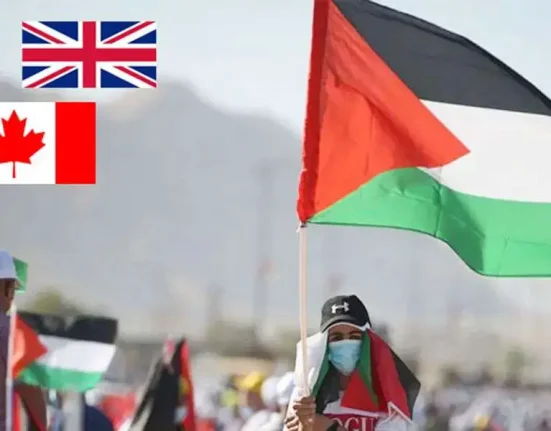In a landmark diplomatic shift, the governments of the United Kingdom, Canada, and Australia have formally declared their recognition of Palestine as an independent state, signalling a coordinated international push aimed at reigniting hopes for a two-state solution between Israel and Palestine.
British Prime Minister Sir Keir Starmer made the announcement on Sunday via his verified X handle, stating that the decision reflects the United Kingdom’s renewed commitment to peace and justice for both Palestinians and Israelis. “Today, to revive the hope of peace for the Palestinians and Israelis, and a two-state solution, the United Kingdom formally recognises the State of Palestine,” Starmer wrote. He further emphasised that the current situation offers neither a secure Israel nor a viable Palestine, a status quo he described as untenable.
Starmer’s declaration follows through on a pledge made in July, in which he warned that the UK would proceed with recognising Palestinian statehood by September unless there were clear, substantive actions by the Israeli government towards peace. That deadline has now culminated in official recognition, marking a significant policy shift by one of the world’s major diplomatic players.
In similar fashion, Canada’s Prime Minister Mark Carney echoed the UK’s stance. Via a statement posted to his official social media platform, Carney declared, “Canada recognises the State of Palestine and offers our partnership in building the promise of a peaceful future for both the State of Palestine and the State of Israel.” He affirmed Canada’s commitment to international diplomacy and human rights, describing the move as a necessary step to prevent further escalation and suffering on both sides.
Australia did not stay on the sidelines.
Prime Minister Anthony Albanese confirmed his country’s recognition of Palestinian statehood as part of what he called “a joint effort” alongside Britain and Canada. In his own words, the recognition is intended to bolster international momentum for a peaceful two-state resolution and reflects Australia’s long-standing support for a rules-based international order.
The coordinated move by the three Western powers adds significant weight to growing international calls for Palestinian statehood. According to UN records, over 140 of the United Nations’ 193 member states—more than 75 percent—have already recognised Palestine as a sovereign entity, including major countries across Africa, Asia, and South America.
However, the announcements have not been welcomed in all quarters. In Israel, former Defence Minister and prominent opposition figure Benny Gantz, who leads the Blue and White political party, issued a scathing rebuke of the recognitions. In a strongly worded statement posted on X, Gantz argued that such declarations in the aftermath of the October 7 Hamas attacks serve only to “embolden Hamas,” prolong conflict, and undermine efforts to free Israeli hostages.
“Recognising a Palestinian State after October 7 ultimately only emboldens Hamas, extends the war, distances the prospects of a hostage deal and sends a clear message of support to Iran and its proxies,” Gantz said, urging Western leaders to focus instead on applying pressure on Hamas to relinquish control in Gaza and release all captives.
Nevertheless, observers say the decisions by the UK, Canada, and Australia may mark a turning point in global diplomatic efforts regarding the Israeli-Palestinian conflict. Analysts argue that the coordinated stance of these major Western democracies could influence other nations that have so far refrained from taking a definitive position.
The move also comes at a time when the humanitarian situation in Gaza continues to deteriorate, with over 30,000 Palestinians reported dead and thousands more injured since the escalation of hostilities. With mounting civilian casualties and no clear path to a ceasefire, international pressure on both Israeli and Palestinian leadership is intensifying.
As of now, it remains to be seen whether these recognitions will yield tangible progress toward renewed negotiations. Still, they undeniably mark a significant step by three influential nations toward endorsing a diplomatic solution that has eluded the region for decades.

